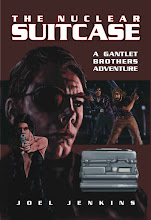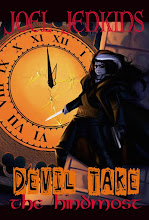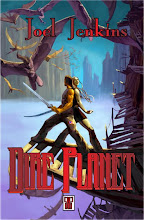The fifth book of the Dire Planet series, featuring lost astronaut Garvey Dire, is now available for Kindle at Amazon and for Epub readers at Barnes and Noble. At 120,000 plus words, this is the longest of the Dire Planet books (or any of my books for that matter) yet published. The length of the novel (approximately 360 pages) means the hard copy will be a bit more expensive ($15.95) than previous Dire Planet books. However, the digital copies are just $3.99 and Pulp Work Press will be running an introductory sale on the hard copy once it is released. Stay tuned for more information on that.
Other than the obvious differences between a physical and digital copy, the one thing that the hard copy includes that the digital copy does not is the extensive footnotes (one hundred of them) which delve into the mythology,history, etymology, and customs of the Martian tribes. The footnotes are not necessary in order to comprehend or enjoy the novel, but some readers have mentioned that they quite like the deeper background that the footnotes provide.
Saturday, March 17, 2012
Outlaw Blues
Ron Fortier of Pulp Fiction Reviews shares his take on Percival Constantine's Outlaw Blues, available at Amazon.
Thursday, March 8, 2012
Michael May talks PulpWork Press
Michael May's Pulptacular column delves into the history of Pulp Work Press, and features an interview with me in which I pontificate on various and sundry subjects which I know little about.
Wednesday, March 7, 2012
Blood and Ink Review
At author Derrick Ferguson's Blood and Ink blog he reviews Through the Groaning Earth and comments on the general state of fantasy fiction.
Monday, March 5, 2012
Coming Soon
I expect this to be available sometime at the end of March. Check out the cool cover: artwork by MD Jackson and cover design by Damon Orrell.
Saturday, February 25, 2012
Shooting Myself in the Foot in the Weird West or Following My Muse
Robert E Howard related how he felt that at times his own character, Conan, would stand at his shoulder and relate his adventures while Howard sat the typewriter transcribing them. These stories seemed to come in no particular order, and after a time Conan left—perhaps to pay a visit at some later date.
As a writer I often feel similarly: as though the characters, themselves—not me—have certain stories to relate. When they start relating these stories I don't necessarily have much control over where and how they take place. Or to put it bluntly, I'm a victim of my muse.
How am I a victim of my muse? I'll give you an example. I recently completed a trio of Weird West short stories featuring famed Native American gunfighter, Lone Crow. These were intended for placement within three different upcoming Weird West anthologies. The story ideas were not a problem for me to develop because, it seemed, that Lone Crow was at my shoulder rehearsing the tales.
However, after I completed the three stories I realized that none of them actually took place west of the Mississippi. Sure, they were all firmly set in the era of the old west, but one story took place in Brazil, another took place in Arkham Massachussetts, and the third transpired in New York City.
One editor quickly confirmed my suspicions that I had shot myself in the foot. He liked the story, but it didn't take place in the West and so it wasn't a Western, and not a good fit for the anthology he was editing.
One of the reasons that I have eleven published novels (number twelve, Lost Tribes of the Dire Planet, on the way next month) is that when it comes to writing I am unreasoningly and blindly persistent in the face of all common sense and logic. Instead of writing, surely, it would be more profitable for me to get some exercise, or maybe even get more sleep or watch TV? Okay, maybe not the last one. But still I persist in writing.
Lone Crow still seemed to be hanging around the home library where I do my writing, perusing a copy of Herbert Asbury's Barbary Coast, so I asked him, “Do you happen to have any adventures that took place somewhere in the West?”
“There was the time that I tried to bring in Shotgun Ferguson for murder,” said Crow.
And I was off and running, typing words as fast as my fingers could fly across the keyboard. I managed to slide the story in before the deadline, and this time Lone Crow's tale was more to the editor's liking.
For me, it seems the demands of an editor and muse most often don't mesh, but occasionally—with some prodding—I can get them to cooperate.
Saturday, February 18, 2012
Teaching Theft in Middle School
Taking a brief respite from my usual self aggrandizement and self promotion, I thought I'd post the text of a letter I'm posting to the local school board. This letter came about due to a conversation I was having with my children. One child suggested that I burn MP3s to my ipod from a CD she had borrowed from the library. I explained that to keep these songs after we had returned the CD to the library would be stealing. Another of my children chimed in to tell me about how his Civics teacher was telling her students about how she did exactly that, and I realized that the school system (or that teacher in particular) was working to undermine the values that I was trying to teach my children.
The text of the letter is below:
I am writing this letter to express a concern about the Civics class in Lakewood Middle School, and in particular the one in which my son is a class member. It's my understanding that Civics is considered a social science, and more specifically the study of good and proper membership in a community. I presume that this would also include the observation of copyright and intellectual property laws.
However, the teacher of this Civics class related to the students that she borrowed CDs from the library, burned the songs to MP3 and kept them after returning the CDs to the library. More egregious in my mind than the actual theft, was that by relating this story she is teaching her students that this is acceptable behavior—which is a direct dichotomy to the values that she should be instilling as a teacher of Civics and as a role model to the students.
I understand that teachers are human and imperfect, but when instructors set this kind of example a moral decline is perpetuated in the students. We live in a time that our efforts should be spent in lifting society to a higher standard, not in rationalizing a lower standard.
Sincerely,
Joel Jenkins
The text of the letter is below:
I am writing this letter to express a concern about the Civics class in Lakewood Middle School, and in particular the one in which my son is a class member. It's my understanding that Civics is considered a social science, and more specifically the study of good and proper membership in a community. I presume that this would also include the observation of copyright and intellectual property laws.
However, the teacher of this Civics class related to the students that she borrowed CDs from the library, burned the songs to MP3 and kept them after returning the CDs to the library. More egregious in my mind than the actual theft, was that by relating this story she is teaching her students that this is acceptable behavior—which is a direct dichotomy to the values that she should be instilling as a teacher of Civics and as a role model to the students.
I understand that teachers are human and imperfect, but when instructors set this kind of example a moral decline is perpetuated in the students. We live in a time that our efforts should be spent in lifting society to a higher standard, not in rationalizing a lower standard.
Sincerely,
Joel Jenkins
Subscribe to:
Posts (Atom)

























